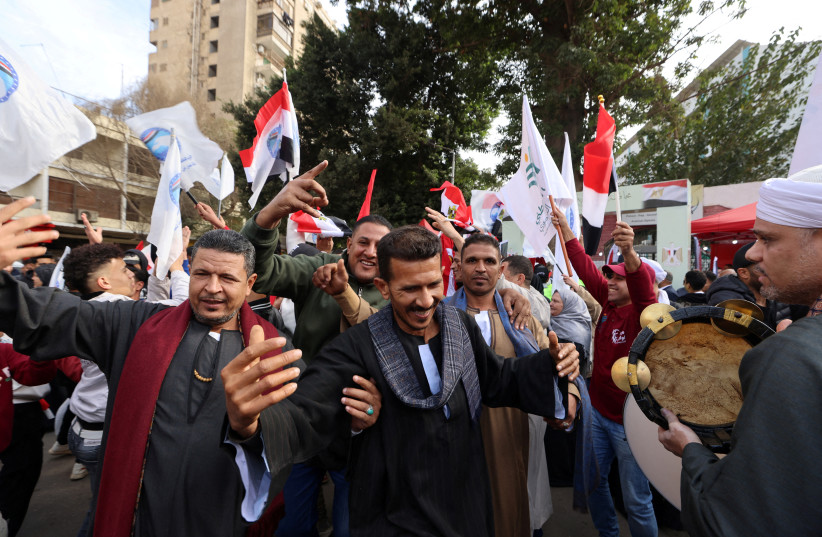Polling stations opened Sunday for Egyptians to cast their ballots in a presidential election the incumbent, Abdel Fattah El-Sisi, is widely expected to win.
The vote in the country of over 110 million people will run until Tuesday, with results expected to be announced on December 18. Former army chief Sisi was first elected in 2014, winning 97 percent of the vote a year after deposing President Mohamed Morsi in a military-backed coup. Morsi was Egypt’s first democratically elected president and an Islamist Muslim Brotherhood political organization member.
Slated for what would be his third six-year term in office, Sisi’s government faces a host of internal and regional challenges ranging from skyrocketing inflation to Islamic extremist violence in northern Sinai and a looming refugee crisis stemming from the ongoing war in Gaza.
Sisi faces three other candidates in this week’s election, none of whom are major figures in Egypt with any change to harm his electoral chances. Ahmed el-Tantawy, a former leftwing member of the Egyptian parliament, would have represented the current president’s greatest political threat. Still, he claims that the authorities have systemically suppressed his campaign.

Human rights under Sisi
Tantawy halted his campaign earlier this year in October after accusing Sisi’s government of sending security forces to harass and arrest his supporters at campaign events and political rallies.
International election observers and human rights organizations have levied harsh criticism against Sisi’s government during his presidency, citing sweeping crackdowns against political dissent that have led to the large-scale imprisonment of liberals, leftists, Islamists, as well as journalists and civil society leaders.
Sisi and his supporters have argued that this was needed to safeguard Egypt from Islamic extremism.
